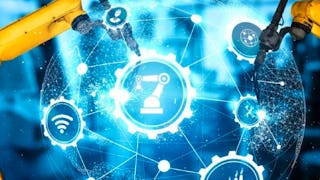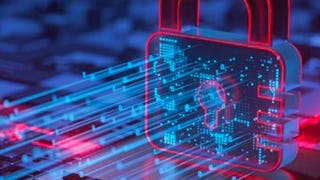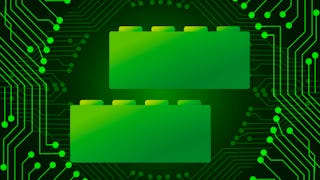Filter by
SubjectRequired
LanguageRequired
The language used throughout the course, in both instruction and assessments.
Learning ProductRequired
LevelRequired
DurationRequired
SkillsRequired
SubtitlesRequired
EducatorRequired
Explore the Cyber Physical Systems Course Catalog
 Status: Preview
Status: PreviewUniversity of California, Santa Cruz
Skills you'll gain: Systems Design, Model Based Systems Engineering, Mathematical Modeling, Simulations, Control Systems, Network Model, Embedded Systems, Systems Analysis, Technical Design, Computational Logic, Digital Communications
 Status: Free Trial
Status: Free TrialSkills you'll gain: Embedded Systems, Embedded Software, Electronic Systems, Computer Systems, Internet Of Things, Automation, System Programming, Control Systems, C (Programming Language), Programmable Logic Controllers, Hardware Architecture, Power Electronics, Peripheral Devices, Wireless Networks, Medical Devices, Electrical Systems, Computer Architecture, Health Technology, Electronics, Maintenance, Repair, and Facility Services
 Status: NewStatus: Free Trial
Status: NewStatus: Free TrialCoursera Instructor Network
Skills you'll gain: Power Electronics, Thermal Management, Electrical Safety, Electrical Power, Electric Power Systems, Electronic Systems, Electrical Equipment, Electrical Systems, Embedded Software, Electronic Components, Energy and Utilities, HVAC, Basic Electrical Systems, Sustainable Technologies, Automation, Environmental Issue, Environment and Resource Management, Environmental Regulations, Environmental Engineering and Restoration, Geospatial Information and Technology
 Status: NewStatus: Free Trial
Status: NewStatus: Free TrialMacquarie University
Skills you'll gain: Anomaly Detection, Cyber Security Strategy, Cyber Threat Intelligence, Threat Detection, Intrusion Detection and Prevention, Fraud detection, Cybersecurity, Applied Machine Learning, Malware Protection, Threat Modeling, Artificial Intelligence and Machine Learning (AI/ML), Artificial Intelligence, Machine Learning Methods, Network Analysis, Machine Learning, Machine Learning Algorithms, Artificial Neural Networks, MLOps (Machine Learning Operations), Data-Driven Decision-Making
 Status: Preview
Status: PreviewEdureka
Skills you'll gain: Cyber Security Assessment, Malware Protection, Automation, Human Machine Interfaces
 Status: Preview
Status: PreviewUniversity of London
Skills you'll gain: Key Management, Security Management, Cryptography, Information Systems Security, Cyber Security Policies, Cybersecurity, Cyber Risk, Encryption, Threat Management, Computer Security, Information Assurance, Data Integrity, Incident Response
What brings you to Coursera today?
 Status: Free Trial
Status: Free TrialUniversity of London
Skills you'll gain: Computer Security Incident Management, Linux, Network Security, Cyber Governance, OSI Models, Incident Management, Incident Response, Security Management, Linux Commands, TCP/IP, Computer Systems, Threat Modeling, Command-Line Interface, Computer Networking, Cybersecurity, Network Protocols, Cyber Security Strategy, Human Factors (Security), Cyber Threat Intelligence, Cyber Attacks
 Status: Free Trial
Status: Free TrialL&T EduTech
Skills you'll gain: Product Lifecycle Management, Embedded Systems, Embedded Software, Manufacturing and Production, Manufacturing Processes, Robotic Process Automation, Control Systems, Computer-Aided Design, Programmable Logic Controllers, Automation, Internet Of Things, Production Process, Cyber Engineering, Digital Transformation, Engineering Analysis, C (Programming Language), Computer Engineering, Enterprise Resource Planning, Industrial Engineering, Geometric Dimensioning And Tolerancing
 Status: NewStatus: Free Trial
Status: NewStatus: Free TrialMacquarie University
Skills you'll gain: Mobile Security, Anomaly Detection, Criminal Investigation and Forensics, Cyber Security Strategy, Cyber Threat Intelligence, Threat Detection, Investigation, Cyber Attacks, File Systems, Intrusion Detection and Prevention, Fraud detection, Mobile Development, Cybersecurity, Applied Machine Learning, Malware Protection, Cyber Security Policies, Apple iOS, Threat Modeling, Artificial Intelligence and Machine Learning (AI/ML), Data Security
 Status: NewStatus: Free Trial
Status: NewStatus: Free TrialMacquarie University
Skills you'll gain: Responsible AI, Information Privacy, Personally Identifiable Information, Data Security, Anomaly Detection, Threat Modeling, Vulnerability Assessments, Cyber Security Strategy, Security Controls, Cyber Threat Hunting, Cybersecurity, Cyber Risk, Security Strategy, Cyber Governance, Security Awareness, Artificial Intelligence and Machine Learning (AI/ML), Security Management, Security Software, AI Product Strategy, Generative AI
 Status: NewStatus: Free Trial
Status: NewStatus: Free TrialSkills you'll gain: MITRE ATT&CK Framework, Penetration Testing, Incident Response, Cyber Threat Hunting, Cybersecurity, Cyber Threat Intelligence, DevSecOps, Cloud Security, Patch Management, Cyber Security Assessment, Exploitation techniques, Network Security, Computer Security Incident Management, Business Continuity, Cryptography, Responsible AI, Threat Modeling, Information Systems Security, DevOps, Disaster Recovery
 Status: NewStatus: Free Trial
Status: NewStatus: Free TrialMacquarie University
Skills you'll gain: Incident Response, Incident Management, Cyber Governance, Computer Security Incident Management, Security Awareness, Cyber Security Strategy, Law, Regulation, and Compliance, Cyber Attacks, Security Management, Security Strategy, Culture Transformation, Cyber Security Policies, Intrusion Detection and Prevention, Mobile Security, Threat Detection, Disaster Recovery, Cybersecurity, Cyber Risk, Cyber Operations, Cyber Security Assessment
Cyber Physical Systems learners also search
In summary, here are 10 of our most popular cyber physical systems courses
- Cyber-Physical Systems: Modeling and Simulation: University of California, Santa Cruz
- VLSI chip design with CPS for Industrial Applications: L&T EduTech
- Electric Vehicle Systems and Technologies: Coursera Instructor Network
- Cyber Security: Application of AI: Macquarie University
- Industrial Cybersecurity: Edureka
- Cyber Security Fundamentals: University of London
- Cyber Security – Technology and Governance: University of London
- Digital Technology in Manufacturing: L&T EduTech
- Cyber Security: Essentials for Forensics: Macquarie University
- Cyber Security: Essentials for AI: Macquarie University










